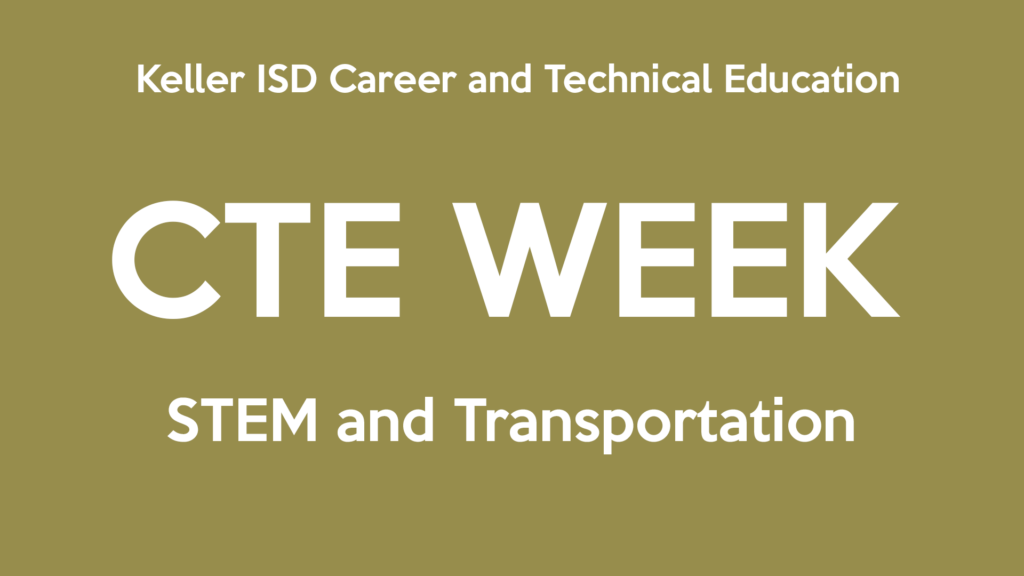Quick Fact about CTE: Students who earned a CTE-related associate degree or certificate make an average of $9,000 more per year than an associate degree-holder with a humanities or social science focus. Those with credentials in high demand fields, such as healthcare, can average almost $20,000 more per year.
Here is a tidbit about STEM. The integrated circuit computer chip was invented in July 1958 in Dallas. Each February during Engineers Week, Texas engineers work with more than 25,000 K–12 students through school visits, science nights and fairs, workshops, and other activities. The UT Marine Science Institute, on the Gulf of Mexico in Port Aransas, began conducting research in 1946 and is the oldest marine lab in Texas.
Today, we recognize our STEM and Transportation teachers. Here is some information about these Pathways.
STEM: Concepts of Engineering and Technology provides an overview of the various fields of science, technology, engineering, and mathematics and their interrelationships. Students will use a variety of computer hardware and software applications to complete assignments and projects. Upon completing this course, students will have an understanding of the various fields and will be able to make informed decisions regarding a coherent sequence of subsequent courses. Further, students will have worked on a design team to develop a product or system. Students will use multiple software applications to prepare and present course assignments.
TRANSPORTATION: In Principles of Transportation, Distribution, and Logistics, students gain knowledge and skills in the safe application, design, production, and assessment of products, services, and systems. This knowledge includes the history, laws and regulations, and common practices used in the logistics of warehousing and transportation systems. Students should apply knowledge and skills in the application, design, and production of technology as it relates to the transportation, distribution, and logistics industries. This course allows students to reinforce, apply, and transfer their academic knowledge and skills to a variety of interesting and relevant activities, problems, and settings.
If you have interest in any of these pathways, please see your counselor or a CTE teacher for more information.

